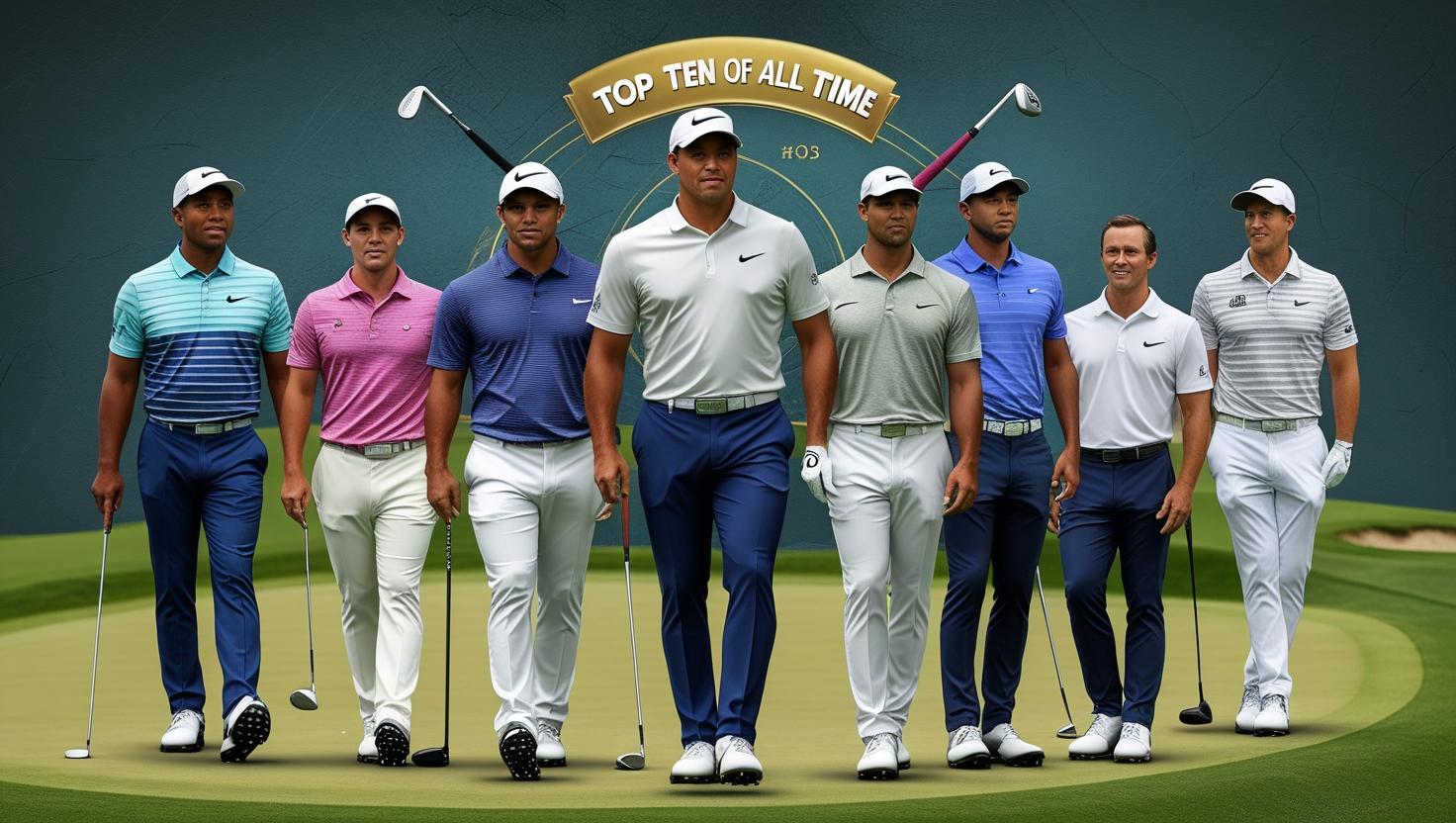Top 10 Golfers in History: The All-Time Elite
Golf is a game of precision, patience, and mental toughness—and only a select few have risen to legendary status through decades of competition. From the early pioneers who shaped the sport to the modern masters who redefined excellence, the history of golf is rich with icons whose achievements still resonate today. In this list, we celebrate the all-time elite—the 10 greatest golfers in history—ranked not just by their wins, but by their impact on the game, consistency, and legacy. Whether you’re a lifelong fan or new to the fairway, these names are etched into the fabric of golf forever.
Here’s a table of the Top 10 Golfers in History, considering major championships, total wins, consistency, influence, and legacy. Rankings may vary by opinion, but this list represents a widely accepted order:
| Rank | Golfer | Country | Major Wins | PGA/Pro Wins* | Career Span | Notable Achievements |
|---|---|---|---|---|---|---|
| 1 | Tiger Woods | United States | 15 | 82 | 1996–present | Tied for most PGA Tour wins; 683 weeks as world #1 |
| 2 | Jack Nicklaus | United States | 18 | 73 | 1961–2005 | Most major wins in history |
| 3 | Ben Hogan | United States | 9 | 64 | 1930–1971 | Known for legendary swing and comeback from car crash |
| 4 | Arnold Palmer | United States | 7 | 62 | 1954–2006 | Popularized golf globally in the TV era |
| 5 | Gary Player | South Africa | 9 | 165+ | 1953–2009 | Won majors on 5 continents; fitness pioneer |
| 6 | Bobby Jones | United States | 7** | ~13 (amateur) | 1923–1930 | Won the Grand Slam (1930); co-founded The Masters |
| 7 | Sam Snead | United States | 7 | 82 | 1934–1987 | Most career wins in PGA history (tied with Tiger Woods) |
| 8 | Tom Watson | United States | 8 | 39 | 1971–2016 | Dominated The Open; nearly won at age 59 |
| 9 | Seve Ballesteros | Spain | 5 | 90+ | 1974–2007 | Brought flair to European golf; Ryder Cup icon |
| 10 | Phil Mickelson | United States | 6 | 45 | 1992–present | Oldest major winner (PGA 2021 at age 50) |
Frequently Asked Questions (FAQ)
How were these top 10 golfers selected?
The rankings are based on a combination of major championship wins, total career victories, influence on the sport, longevity, consistency, and historical significance. While some criteria are objective, others are based on expert consensus and legacy impact.
Why is Tiger Woods ranked above Jack Nicklaus even though Nicklaus has more majors?
While Jack Nicklaus holds the record for most majors (18), Tiger Woods has matched or surpassed him in several other categories, including total PGA Tour wins (82, tied with Sam Snead), dominance at peak performance, and overall influence on the modern game.
Why is Bobby Jones included if he was an amateur?
Bobby Jones remains one of the most important figures in golf history. He won 13 major championships (7 considered majors by today’s standards) and achieved the original Grand Slam in 1930. His legacy includes co-founding The Masters and elevating the sport’s integrity.
Why aren’t more European or international golfers on the list?
Golf’s early history and dominance were largely centered in the United States. However, legends like Seve Ballesteros and Gary Player represent international greatness. The game is now more global, and future lists may see greater diversity.
What is considered a “major win” in golf?
There are four men’s major championships in modern professional golf:
The Masters
The U.S. Open
The Open Championship (British Open)
The PGA Championship



